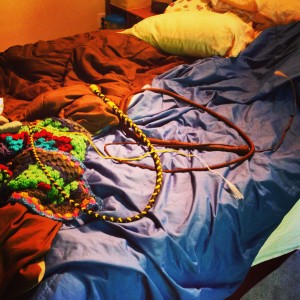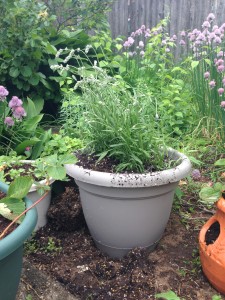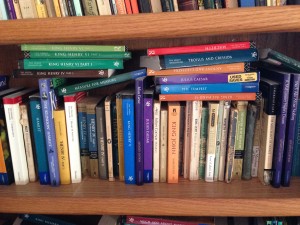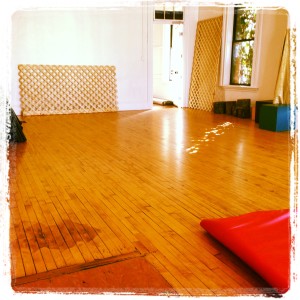Classes start up next week which means that I’m going through my lists of “what do I have and what do I need?” for the semester.
While I realize that, due to my eclectic and bizarre range of teaching subjects, my list is probably quite different from others, I thought it would be amusing to share my “back to school” supplies list with the great wide world of the internet.
1) Printer ink and paper: although I try, at all possible opportunities, to do my printing outside of the house (I print paper materials for my department-sponsored classes in the department office, and for materials related to my degree such as dissertation drafts I have access to the printer within the graduate lounge which provides free ink and paper to us starving grad students), there’s always going to be the outlying scan, sign, rescan form, or the emergency “gotta have it now!” print job. Ensuring that my printer is in good working order is an absolute must before the semester starts.
2) Colored pens that I like writing with. While I do the vast majority of my grading on the computer (I type much faster, and much more legibly, than I write), I still like to red-pen (or pink-pen, or green-pen… ) my own writing. I keep an array of colored pens on hand (I like the Pentel RSVP pens for this purpose) just to ensure that I can do multiple passes on one printed draft. It helps me better develop my thinking as I go along, and it helps me to visualize the amount and kind of work I’ve done over the course of a day, week, month…
3) Whiteboard pens and eraser. My giant whiteboard is my savior and I love it; keeping it in good working order means that deadlines get met and sanity gets maintained.
4) Appropriate-sized jump drives. I never leave the house without a jump drive. It has saved my skin on more times than I care to count. Because I tend to lose them, I also tend to pick them up when I find them cheap. At the moment, I travel with one on my keychain in an attempt to keep myself from misplacing it. I’ll let you know how that goes when I have any real data on the experiment…
5) Enough shelf space. Because Library Books (much like Winter) are coming.
6) Batting Gloves. When dealing with swords (which I will be doing a lot this semester thanks to a couple projects that I’ve been asked onto), it’s necessary both for your protection and the swords’ that you cover your hands. You want to wear unlined, leather gloves. Batting gloves are great for this; they fit a variety of hand sizes, they’re nice and thin so you still have great dexterity, and they can be found and acquired for a very reasonable price. I actually tend to buy mine in youth sizes since I have teensy hands. Anyway, when swording: wear batting gloves. I’ve had to ensure that all of my pairs are still pairs and haven’t broken up with their mate over the many moves I’ve executed in the past few years (I am a little embarrassed to admit how many pairs I have….).
7) Well-stocked tea/coffee cabinet. Because caffeine is necessary to sanity in troubled and/or busy times.
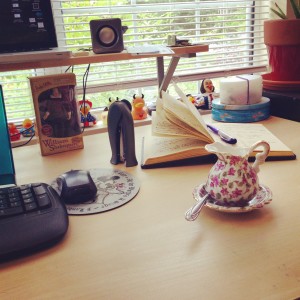
A spot of tea with my editing the other day…
8) Folders, envelopes, paper clips, various means of keeping paper together. Because I do a lot of printing of documents that aren’t necessarily sized for staples, and aren’t necessarily meant to be kept together at all times, but that I still want in a reasonable order when I get them home. Alternately, that I plan to hand to someone else and would not want to get misplaced, misshapen, or generally confused from lack of an appropriate keep-it-together method.
9) Sanity. Because losing your mind shouldn’t happen until at least midterms.
I hope that you’re getting along well with the rest of your summer, and that bracing for impact isn’t awful. Have a great last few days of summer, all!

